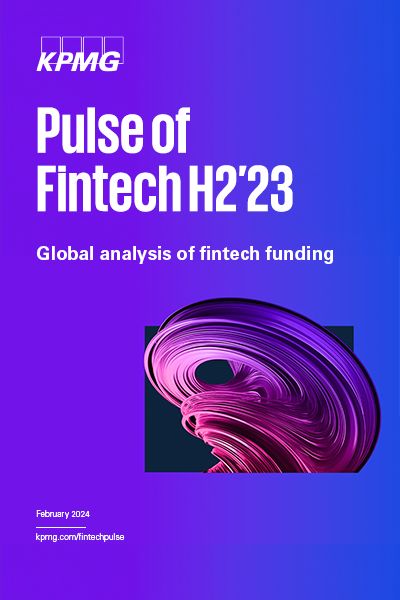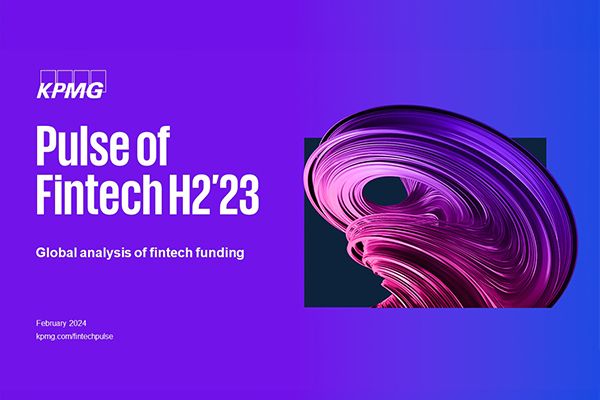H2 2023 - Pulse of Fintech latest edition
2023 was a difficult year for the fintech market globally, with both total fintech investment ($113.7 billion) and the number of fintech deals (4,547) experiencing their weakest results since 2017.
Fintech investment in the EMEA region grew considerably in H2’23, accounting for $16.3 billion in investment compared to $8.2 billion in H1’23. The annual total was far less optimistic; the $24.5 billion of investment accounted for the lowest level of fintech funding in seven years. The frigid exit environment, high interest rates, and geopolitical uncertainties and conflicts had many investors in the region holding on to their capital.
The seven largest deals of H2’23 occurred in five different jurisdictions, which highlights the strength of the fintech sector in EMEA, despite the current market softness. The largest deals came from the UK (Finastra – $6.9 billion), Sweden (Macrobond Financial – $763 million), the Netherlands (PayU – $610 million), Italy (Banco BPM – $548 million), the United Arab Emirates (Tabby – $950 million, Haqqex – $400 million), Finland (Nomentia – $385 million) and Spain (Gestión Tributaria Territorial – $353 million) all saw substantial fintech deals this quarter.
Key H2’23 highlights from the EMEA region include:
Investors increasingly interested in SME short-term financing solutions
Within Europe, particularly the UK, there’s been a strong growth in the uptake of buy now, pay later solutions, with growing acceptance of the multiple payments business model. While many of these solutions have been focused on the B2C space, investors have increasingly shown interest in solutions aimed at providing SMEs with more flexible short-term financing solutions and their own BNPL products and services.
Continuing efforts to support open banking and finance
During 2023, the EU proposed a number of new rules focused on improving the digital financial services landscape and safeguards for consumers, including a new Payment Services Directive (PSD3) and a new framework for financial data (FIDA).The European parliament also approved plans to make instant payments a requirement across the EU.The legislators also agreed to amend the Settlement Finality Directive (SFD) to grant access for payment institutions to payment systems. These activities will likely enhance opportunities related to open finance over time and open doors to new innovations and new players in the space.
Alternative assets gaining traction within wealthtech space
Within the wealth management space, 2023 saw increasing interest in the EMEA region for solutions focused on alternative assets. The largest deal in this space was a $149 million raise by Germany-based Moonfare in H1’23 — a startup focused on opening up private market investing to individual investors not considered to be ultra-rich. Partnerships focused on providing the customers of financial institutions with access to alternative investment platforms were also on the rise in EMEA.
Regtech seen as a growing priority
Regulators in the EMEA region emphasized the importance of fraud and financial crime prevention in 2023, taking a much stricter approach with fintechs and other institutions in terms of their AML and KYC processes — with the FCA in the UK in particular handing out a number of penalties, including restricting activities, such as the onboarding of customers. Despite a slowdown in funding in 2023, the constantly evolving regulatory environment is expected to keep regtech interest quite high, particularly with respect to AML/KYC solutions.
Trends to watch for in H1’24
- M&A activity will pick up in the payments space and for distressed assets
- AI will be a critical priority
- Enterprise solutions will remain a critical focus for fintechs
- Evolving regulatory environment will keep pushing investment towards regtech
- ESG will continue to create fintech opportunities
- Fintechs will increasingly target the SME market
- Asset tokenization will continue to attract attention
- Real economy partnerships and alliances will help drive renewed interest in fintech
- Developing markets will establish as fintech hubs
Looking ahead to the first half of 2024, investment in the fintech sector globally is expected to remain relatively soft, although investment will likely begin to pick up as interest rates reduce with common consensus that this will be in Q3/Q4.
Whether you’re the founder of an emerging fintech or the CEO of a large financial institution, it’s important to consider how your company can drive the most value from your operational activities so that you are well positioned to be sustainable long-term. As you read this edition of Pulse of Fintech, ask yourself: What can we do to enhance our profitability and ensure we’re sustainable for the long-term.
Connect with us
Jussi Paski
Head of Startup & Venture Services
KPMG in Finland
Juha-Pekka Mylén
Head of Financial Services
KPMG Suomi



